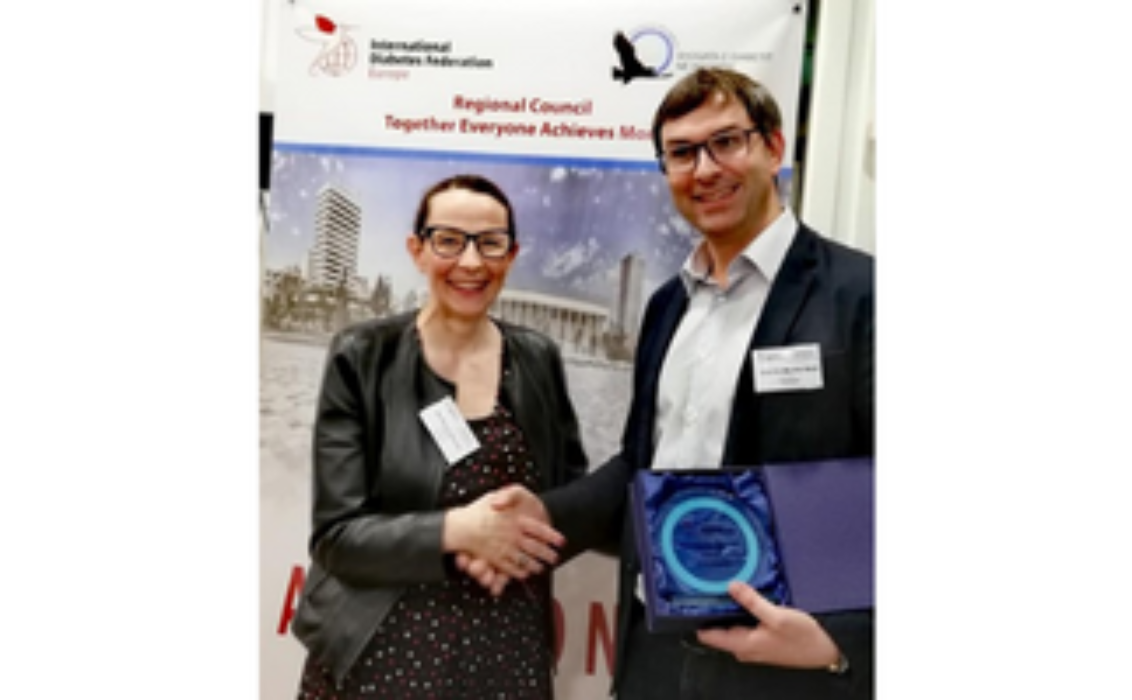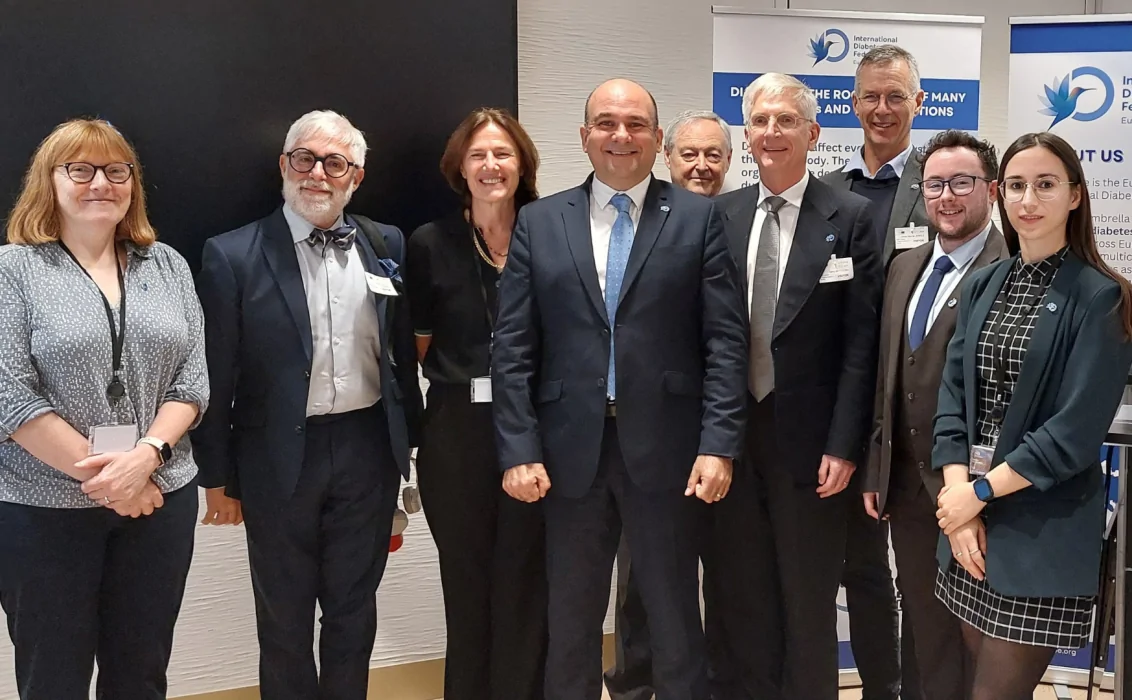IDF Europe celebrates the third edition of IDF Europe Prizes in Diabetes on 25 November in Tirana, Albania. For the third consecutive year, we acknowledge the excellence, innovation, and commitment in diabetes. This time, Pr Dr Martin Heni won IDF Europe Young Researcher Prize sponsored by Air Liquide Healthcare, for his studies on pathogenetic of insulin resistance and to type 2 diabetes and his interesting research on the effect of the hormone insulin in the human brain.
IDF Europe Young Researcher Prize is awarded to a young researcher under the age of 40 who is involved in innovative patient-oriented research in diabetes and/or its complications. Raising awareness and improving the lives of people with diabetes is continuing work and in IDF Europe we believe recognizing every step forward in the field is a gain for the whole diabetes community.
“Research always requires new talents and it is what the Young Researcher Prize seeks to acknowledge. The major contribution of Pr Dr Heni to apprehend the effect of Insulin on the brain is of importance to understand long-term consequences of diabetes (in particular cognitive decline) and the development of multi-morbidities .This prize is also a special one to us because it comes from a jury of researchers but also from patients. We are proud to support this initiative illustrating Air Liquide Healthcare commitment to patients suffering from diabetes.” Muriel Doucet, Communication and Public Affairs Director at Air Liquide Healthcare.
At his 37 years old, Pr Dr Heni already published his work in more than 98 original articles and around 30 high-ranking international journals. He is a passionate researcher always willing to share the enriching outcomes science can bring to people living with diabetes. After the ceremony, we had the opportunity to talk to him:
 |
|
Pr Dr Martin Heni receives the prize from Air Liquide Healthcare representative, Communication Director Muriel Doucet. |
You have just won the IDF Europe Young Researcher Prize by Air Liquide after receiving many others such as the German Diabetes Association (DDG) and the European Foundation for the Study of Diabetes (EASD) ones. What makes winning IDF Europe prize different? What does it mean for you?
I am very grateful to receive this prestigious price of the IDF Europe. For me, IDF was always very special as it is a worldwide community. I really appreciate that patients have a strong voice at IDF, something that is sometimes missing at other diabetes organizations.
However, patient care is still not optimal in many places and I learned that there is a lot to do to further improve prevention, treatment and screening for complications in diabetes.
You are specialized in diabetology and endocrinology. Why did you decided to specialize on those subjects?
I became interested in endocrinology quite early and during my internal medicine rotations in medical school, I understood that diabetes is a very important part of endocrinology. Medical care for patients with diabetes requires a lot of knowledge of different fields of medicine, way beyond internal medicine. Already back then, I realized that good medical treatment could dramatically improve the lives of patients with diabetes.
One the your main subjects of study are related to the hormone insulin and type 2 diabetes? Why did you decide to focus on those particular topics?
During my doctoral thesis time at the department for Endocrinology and Diabetology in Tübingen (Germany), I got in contact with excellent researchers who investigated the pathogenesis of type 2 diabetes. I learned that type 2 diabetes and insulin resistance are incompletely understood and I felt addressing this issue could improve prevention and type 2 treatments, not yet sufficient for everyone.
Eventually, I mainly focused on the brain and the effect that insulin has on it. I and other colleagues discovered that insulin action in the brain is crucial for the regulation of food intake and body weight, as well as for the modulation of whole body glucose metabolism.
Do you think Diabetes, as a condition affecting 60 million people in the European region, should be addressed through policy lines at EU level? What do you think about the current European health policies regarding diabetes?
This is absolutely necessary and I feel that much more work is needed at the EU level. Although a lot has been accomplished over the past few years, we still do not have national diabetes strategies in each European country. The cooperation and harmonization of diabetes strategies across European countries needs to be intensified in the future.
As I am not only a clinician, but also a researcher, I am aware of limitations in the European funding policy when it comes to diabetes, especially regarding clinical research projects funding opportunities, which are limited and most of them are targeted towards other disease areas like cancer.
I thus feel that collaboration efforts must urgently be intensified and translational approaches should be strengthened.
What do you think should be the role diabetes associations around Europe must play on diabetes?
I think diabetes associations across Europe are the best way to bring together all major stakeholders at a European level, including physicians, patients, research organizations and pharmaceutical companies. This can foster cooperation, innovation, and translation to reduce the burden of diabetes and improve the outcomes in patients with diabetes.
Finally, what are your next plans on the field of diabetes?
One current major focus is the communication between various metabolically important organs, including the brain. This will help to better understand sub-phenotypes in diabetes, i.e. there are patients who will not develop any complications beside long-standing diabetes, while others develop complications quite early. If we learn what determines these differences we will ultimately be able to predict the course of diabetes and individualize treatment, based on the patients risk profile. The goal of this is to improve each patient’s quality of life and reduce the numbers of complications in diabetes.
Learn more on his research here
Thanks to Air Liquide Healthcare for supporting IDF Europe Young Researcher Prize.



